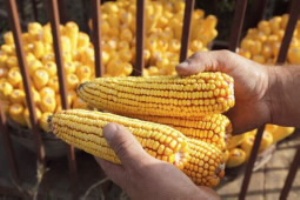Scientists from the American Chemical Society have released an article that describes the gap in knowledge about the impact caused by nanoparticles on various food crops such as tomatoes, corn, and rice.
The article was published in the Journal of Agricultural and Food Chemistry. Till date, it was expected that nanotechnology can be used to improve the productivity of crops for fuel, food and other benefits.
 Nanoparticles on corn
Nanoparticles on corn
Scientists observed that nanoparticles, about 1/50,000th the width of a human hair, are being utilized in various products such as medicines and cosmetics. It was noted that these nanoparticles will settle in the surroundings and deposit in the soil, in the form of fertilizers and growth boosters.
Certain plant species were capable of absorbing and accumulating nanoparticles. However, scientists could not establish if the absorption of nanoparticles by food crops could affect the animals or humans eating them. Researchers tried to find out if these nanoparticles had a detrimental effect on animals or humans consuming these food crops.
Researchers studied almost 100 scientific articles to determine the effects caused by various types of nanoparticles on edible plant species and on animals or humans consuming them. They concluded that the absorption rate of nanoparticles varied according to the nature of plant, the chemical composition and the size of the nanoparticles. According to article reports, it was established that the information on toxicity of nanomaterials in plants is at the initial stage. It also reported that the development of the nanoecotoxicology field will reveal more details required to solve this problem.